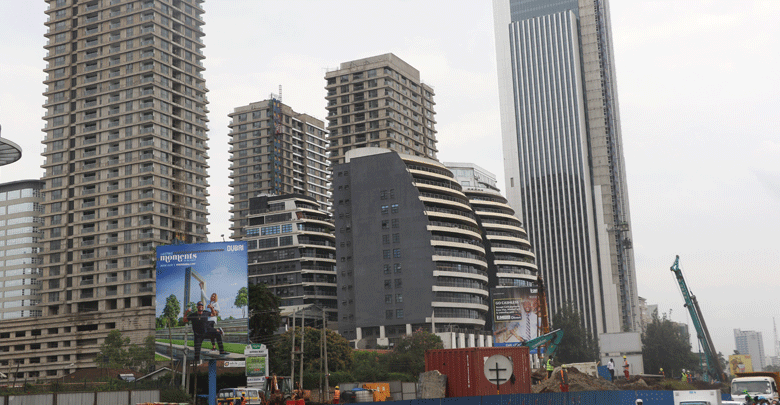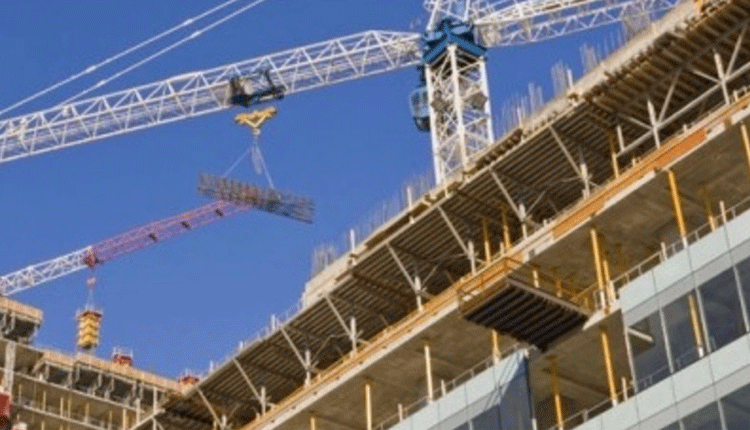How Chinese developers are redrawing Kenya’s skyline

Steve Umidha @UmidhaSteve
While China’s influence is considered mainly in the One Belt, One Road project, Kenya’s real estate marked by slow sales and an oversupply of luxury listings, has seen a surge in interest from the country of the dragon.
Probably due to decreasing profit margins for construction projects in mainland China, Kenya has emerged as a low-hanging fruit for both Chinese State-owned construction firms (SOC’s) and private contractors, seeking opportunities in the local property market.
Predictably, this is turning Nairobi’s skyline into a hotspot for Chinese-built sky-scrapers, worth billions of shillings.
A peek at Nairobi’s Upperhill and Westlands and Athi River in the last decade, has seen a proliferation of major construction projects, which are changing the skyline at a frightening pace.
AVIC international, China Wu Yi Co Ltd and Twyford Ceramic, for instance, injected over Sh50 billion into construction projects in the Kenyan market – with AVIC International alone putting up a Sh40 billion mixed-use property, which includes the 184m-tall Avic Tower.
The project which is well underway in Nairobi’s Westlands will be the firm’s African hub.
The firm is putting up what it says will be a one of its kind project in East Africa at the intersection of Waiyaki Way and Chiromo lane, which dwarfs the once imposing Villa Rosa Kempinski building, ARM Cement and Mirage Towers.
While many firms are in the market for similar mega projects and it is expected that with the new public–private partnership (PPP) toll model, Chinese firms are expected to beat competition.
Already, China is developing the Nairobi Expressway as the Americans eye the Mombasa/Nairobi Expressway. Chinese consultants have made African projects low-cost and competitive, on the back of affordable State-supported credit amid supervision by Chinese nationals.
Chinese projects are usually delivered at relatively low budgets, making it difficult for Western firms to compete with the Africa-seasoned Chinese. Chinese billionaire Zeyun Yang, for example, through his private firm Edermann Properties, is compiling a burgeoning portfolio of over 4,000 properties in the Kenyan capital,Nairobi and seaport of Mombasa.
Located in Nairobi’s central east district, the development will offer 2,720 high-rise apartment units in eight separate 34-storey apartment blocks. The towers will form a 2.3-hectare gated community which will be accessed from downtown Nairobi via a pedestrian bridge.
Upon its completion later this year, the River Estate is poised to become the second tallest housing complex in East Africa, behind Mark Properties’ “Dubai-style” Le’mac Towers.
There are nearly 400 Chinese construction firms in Kenya alone, and an estimated 10,000 firms on the continent, according to a 2017 study by the global consulting firm McKinsey & Company.
Atleast 20 skyscrapers, boasting a shopping destination that stocks Chinese and other global products are expected in the country with plans to build a self-controlled pseudo-urban enclave of operation.
Growing disquiet
However, there is a growing disquiet among industry players in the last few years over the speedy approvals of projects with Chinese connections, fingering the local authorities, especially at the Nairobi County offices of complicity.
Tim Kipchumba, a private developer and the CEO of real estate firm, Questworks Ltd says it has been happening for a while now and some of the projects lack proper and quality finishes, some use cheap materials to put up such structures.
“There should be a need for local-content regulation,” he said.
What’s worse some of the sky scrapers, according to industry experts, are of substandard quality and do not conform to the standards and procedures laid out by the sector – predominantly with local content.
President of Institute of Quantity of Surveyors of Kenya (IQSK) James Munene says there is “outright corruption” in such offices, aided by the absence of strict by-laws and unwillingness by relevant authorities to enforce the existing laws in the sector.
“Let’s call it as it is, it is corruption. Those dodgy deals are happening where some of those companies are paying bribes to push for approvals at City Hall.
The problem is at the enforcement level because standards exists, it is corruption” he said in a telephone interview.
“While most of them have adopted innovative class to their buildings, you realise that local content is missing in some of these projects and some of them are by-passing the procedures.”
But Principal Secretary in the State Department for Housing and Urban Development, Charles Hinga held that his office was not aware of such concerns.
“No, we don’t have such information. We only respond to specific issues not general issues. The right place where that information is taken is to NCA (National Construction Authority), so solicit their views,” he said.
“On AHP (Affordable Housing Programme), kindly note that Affordable housing is not synonymous to cheap or poor quality.
So any poor development whether by Chinese, locals or any other developer irrespective of their orientation, or where they come from will erode the confidence of the public in the programme.”
Design structures
But Munene says that due to the fact that Chinese developers are moneyed and come armed with ready design structures, they have managed to by-pass all these procedures, with some of the projects often going unchecked by NCA.
By law, NCA is mandated to regulate, streamline and build capacity in the construction industry.
It also registers projects, provides supervisors and workers accreditation and also does contractor registration.
Efforts to reach NCA’s Chief executive for comment bore no fruit as his phone calls went unanswered.Other factors being blamed is unavailability of improved building code of regulations – currently awaiting gazettement.
The government has been attempting to institute a revised building code of regulations that allows the adoption of new building technologies that can significantly lower construction costs.
It seeks to discard the 1969 Kenya Building Code that has outlived its usefulness.
“We hope this will help address some of the challenges that have for a long time affected the sector,” Moses Nyakiongora, chairman of National Buildings Inspectorate said in a previous interview.













